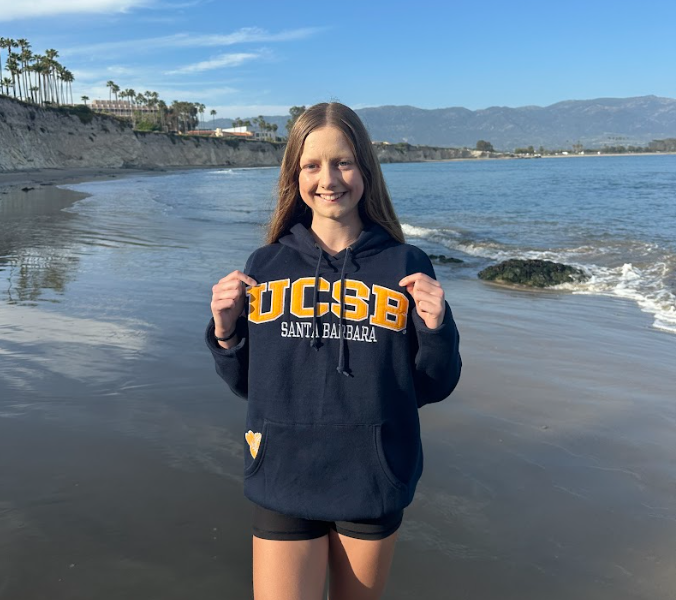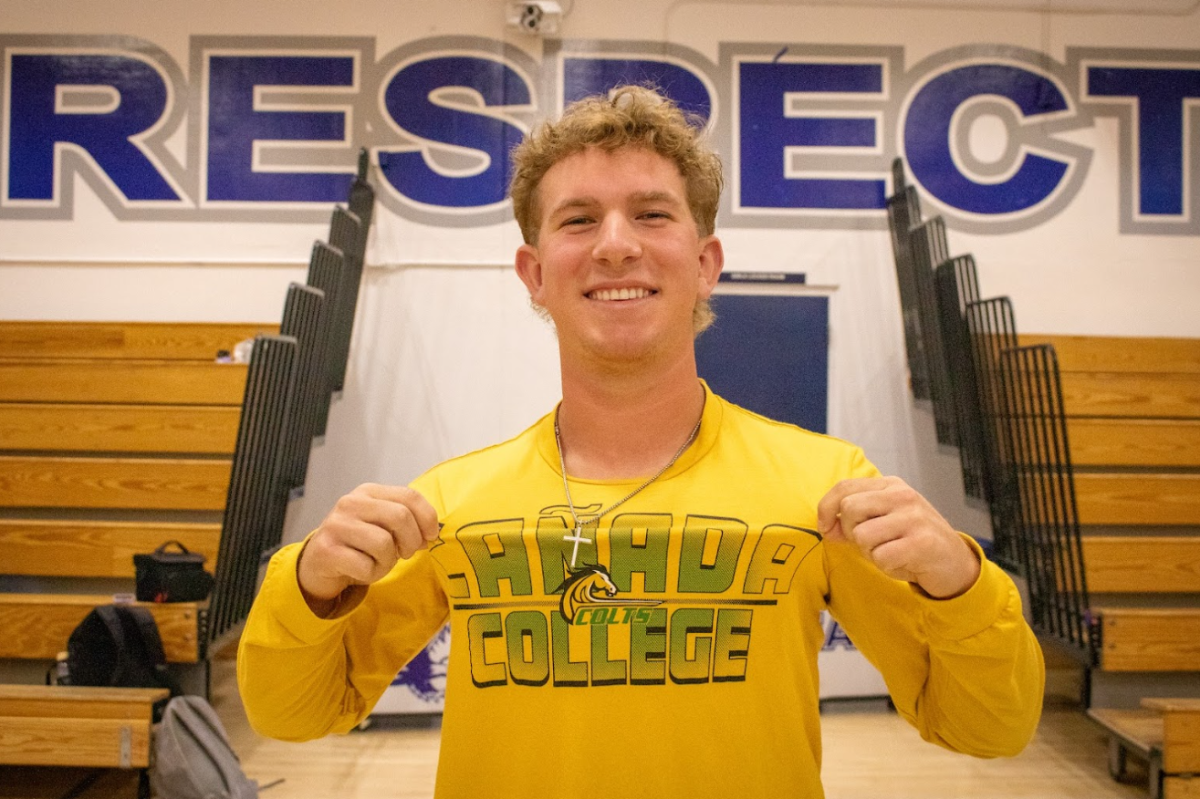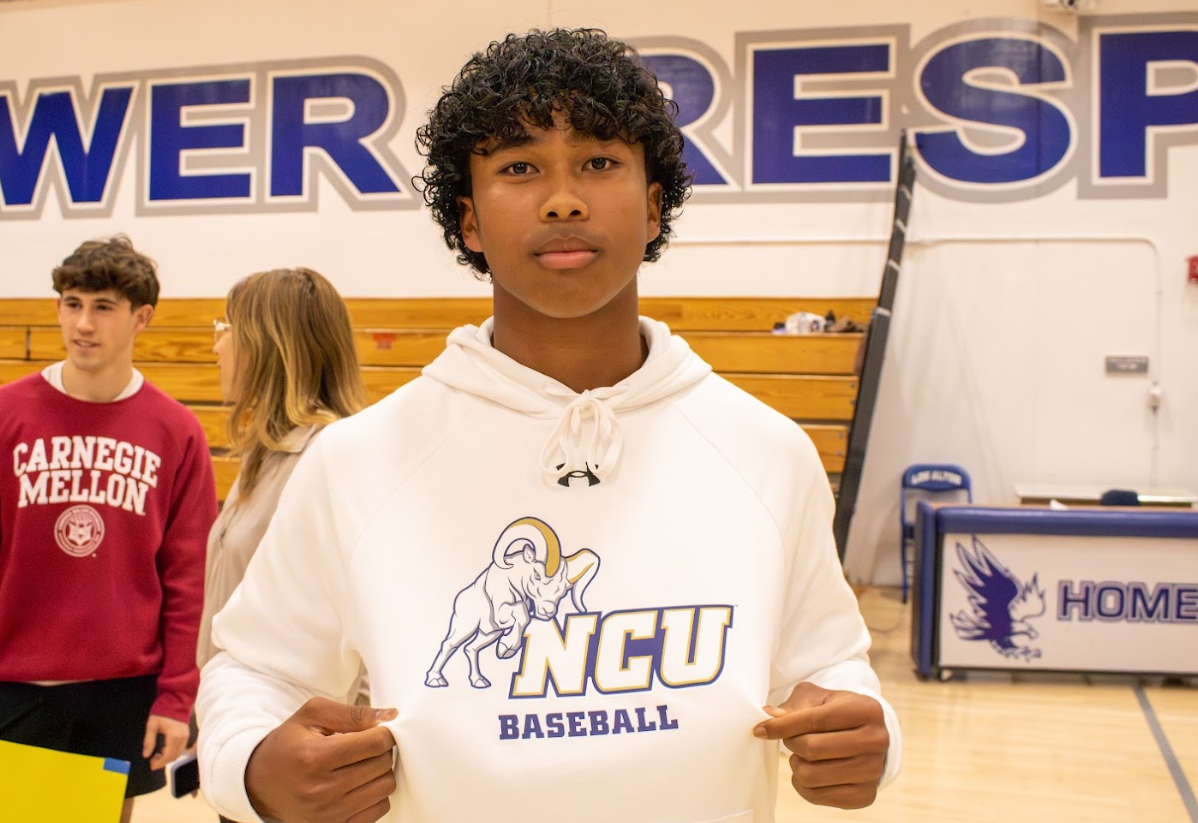While most students hunkered down before finals week, freshman Hana Brett and sophomore Albert Gwo were preparing for something else: the 2013 USA Swimming Winter Junior Nationals. Hana and Albert compete for the Palo Alto Stanford Aquatics team (PASA), a local team ranked by USA Swimming as the eighth most competitive team in the United States. Both swimmers train at PASA’s Fremont Hills site in Los Altos Hills. For this meet, Hana qualified for the 100 and 200 yard breaststroke, while Albert qualified for the 50 yard freestyle and 100 yard butterfly. Based on his individual speed, Albert was selected to be on the 200 medley relay, 200 freestyle relay and 400 freestyle relay.
The highly competitive swim meet held in the Greensboro Aquatic Center in North Carolina from December 12-14 was the last Junior Nationals meet of 2013. Junior Nationals happens twice a year, once in the summer and once in the winter, and hosts the nation’s top 18 and under swimmers.
“The pressure and level of competition is unlike any other meet I have ever been to,” Hana said. “One swimmer had to be carried out on a stretcher and taken to the hospital because he couldn’t breath from the air quality inside. Later that night, he came back to win in finals in a relay… Everything at this meet was very mental; you had to make sure nothing psyched you out, and that you stayed focused.”
In order to qualify for either meet, 18 and under swimmers from all over the nation must meet challenging USA Swimming time standards. Prospective swimmers have about one year before the meet to qualify for their specific age group for any of the 14 individual races and three relay races held at the meet.
“Going to nationals is a nerve-racking process for some people, but for me it’s pretty exciting,” Albert said. “You get to skip a week of school to represent your swim team at one of the most elite competitions in the nation… Once you have qualified, you set your training routine to working at the hardest level until around a week or two before the competition.”
Hana and Albert boarded the plane (with costs covered by USA Swimming) to Greensboro at 7 a.m. on December 10, a normal Tuesday morning for any other student. Two days later, Hana and Albert walked onto the pool deck of the Greensboro Aquatics center, along with the eight other boys and 11 girls on PASA who qualified.
“The moment you walked onto the pool-deck, you could feel the energy and excitement,” Albert said. “The pools, stands, everything was massive… The feeling of racing against the nation’s top athletes is definitely extremely exciting and nerve-racking.”
As with every major swim meet, there were preliminary swims for every event, in which the swimmers who swim the eight fastest times during preliminaries qualify for the finals. Swimming multiple events meant that Hana and Albert were kept busy throughout the day.
“The meet started at 9 a.m. [every morning], but the pool opened for warm ups around 7 a.m.,” Hana said. “Preliminaries usually ended around 2 p.m., and finals started at 5 p.m. You only had a few hours in between sessions before warm ups again around 4 p.m. Finals ended at 8 p.m., so you would go back to your hotel to sleep and get ready to do it all over again.”
Although she did not qualify for finals, Hana broke her personal records in all her races, swimming a personal best time for the 100 breaststroke and placing 41st overall in the 200 breaststroke.
“This was mainly a learning experience for me,” Hana said. “It was my first time traveling so far to compete in a meet, and I did not know what to expect. However, once I walked onto the pool deck on the first day of the meet, I quickly realized how exciting this was…This was a whole new world of swimming that I had just entered… Overall, it was an incredible and motivating meet to watch and compete in.”
Albert took home a silver medal for the 200 medley relay, a seventh place medal for the 400 freestyle relay and a team award plaque.
“[The most exciting race the 200 Medley relay],” Albert said. “We were seven hundredth’s of a second away from clinching the gold medal. But nevertheless a silver medal at a National Meet is much more than I ever expected.”
Both swimmers will continue to train competitively year-round and focus on speed, technique and their ability to handle high-pressure meets in the future.
“Aside from all the pressure, it was an incredible experience,” Hana said. “Being able to travel across the country and compete in a meet like this with so many amazing swimmers was very inspirational. It made me realize what was possible and pushes me in my training to get even faster.”








